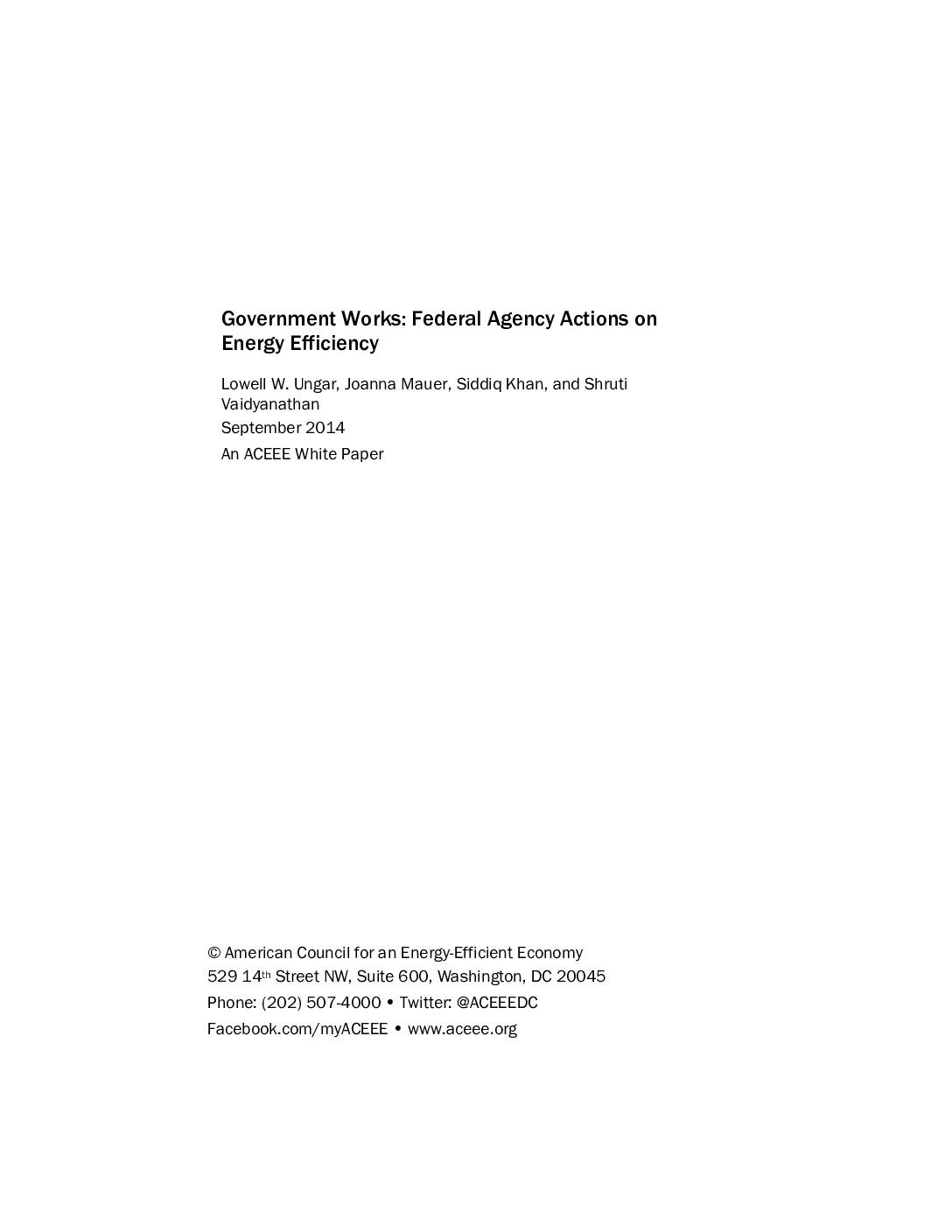Federal agency actions on energy efficiency under existing legislative authority are saving consumers money, creating jobs, reducing greenhouse gas emissions and air pollution, and reducing oil use and imports. In this paper we examined four sets of recent and prospective agency actions on energy efficiency: appliance standards, vehicle standards, power plant emissions standards, and select housing policies.
We estimate that collectively these policies could save the American people $2.6 trillion (net present value of savings after needed investments for measures taken through 2040). They could cut cumulative carbon dioxide emissions by 34 billion metric tons, more than the total emissions from fossil fuels in this country over six years. They could reduce oil use by 3.4 million barrels a day in 2030, and 4.7 million barrels a day in 2040. And they could cut electricity demand in 2030 by one-fourth. Half of the energy savings are from policies that have not been issued yet.
To achieve them, agencies will need to use system-wide savings, considering the whole electric system for the carbon dioxide emissions standard for existing power plants, and the engine, tractor, and trailer for the fuel economy standard for heavy-duty trucks. Agencies also will need to end delays, setting long overdue standard for manufactured housing and criteria for new homes with federal loans, and lighting standards outside an appropriations rider. Without further legislation we still will not fully use efficiency to meet national goals, but these agency actions are strengthening the economy, the environment, and national security.
Share this

Sectors: Cross cutting, Equipment and appliances, Industry, Power sector, Renewables, Transport
Country / Region: Northern America, United States
Tags: air pollution, carbon, carbon dioxide, emissions, energy, energy efficiency, greenhouse gas emissions, Imports, jobs, net present value, paper production, pollutionKnowledge Object: Publication / Report
Published by: ACEEE
Publishing year: 2014
Author: Lowell W. Ungar, Joanna Mauer, Siddiq Khan, Shruti Vaidyanathan
